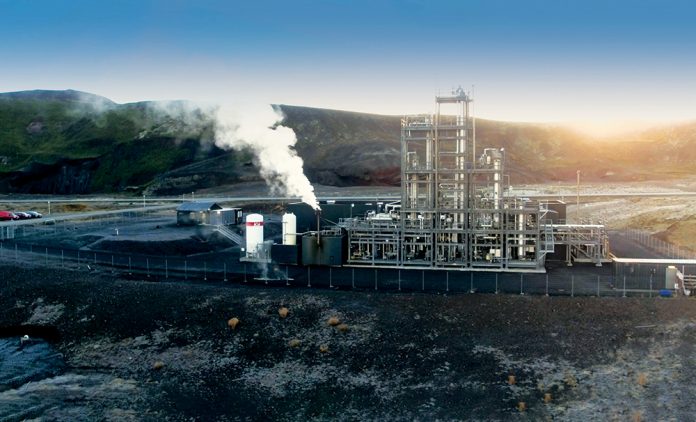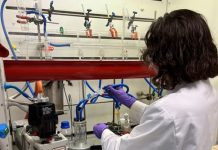Icelandic tech company Carbon Recycling International (CRI) has linked up with sustainability specialists Johnson Matthey (JM) on a long-term exclusive catalyst supply agreement for the use of JM’s KATALCOTM methanol catalysts in CRI’s Emissions-To-Liquids (ETL) designed CO2 to methanol plants.
This combined offering seeks to meet the urgent need to remove carbon emissions in hard-to-decarbonise sectors of the economy.
Conventional methanol production involves fossil feedstocks such as natural gas or coal. Methanol manufactured with CRI’s ETL process using JM catalysts provides a highly effective route to sustainable methanol from CO2. This can be recovered from either industrial processes or biomass, such as waste and residues, or atmospheric sources. This technology will provide a vital pathway to achieving net zero emissions by contributing to the reduction of greenhouse gas emissions.
Methanol is an important raw material used to produce many everyday products including adhesives, pressed wood, pharmaceuticals, clothing and transportation fuels. Making methanol from recycled CO2 is one of the most effective ways to achieve carbon capture and utilisation (CCU) for the chemical industry.
Methanol manufactured with CRI’s ETL process meets all standard industrial specifications and can be used in all current methanol applications. As a global leader in sustainable technologies that enable decarbonisation, JM will supply its methanol synthesis catalyst for the CRI designed ETL plants. JM’s catalyst has been used in all CRI’s plants to date and their successful 10-year co-operation will continue with this agreement.
“The need for proven, scaled and commercial solutions to produce sustainable chemicals and fuels has never been more urgent. Continuation of our long-standing cooperation with JM ensures that CRI can further strengthen its leadership in CO2-to-methanol technology and meet the needs of a growing number of clients adopting our flexible Emissions-to-Liquids technology,” said Ingólfur Guðmundsson, CEO of CRI.
“At Johnson Matthey our whole focus is about creating a world that is cleaner and healthier”, said John Gordon, Managing Director, Johnson Matthey. “We believe we have a critical role in decarbonising the way chemicals are produced. We are excited to continue our long- standing cooperation with CRI, since 2011, through the development of green methanol, building a cleaner future based on reduced emissions and more sustainable use of natural resources.”
Case study
Chinese petrochemicals corporation Jiangsu Sailboat Petrochemicals has signed an agreement with CRI to design a chemical plant based on ETL technology.
The plant – which makes polymer and plastics products – will recycle around 150,000 metric tons of CO2 and 20,000 metric tons of H2 per year from other onsite processes to produce 100,000 tons of methanol annually.
Direct use of CO2 at the plant will equal taking 53,000 fossil fuelled cars off the roads, and indirect emission savings from non-use of fossil raw materials is estimated to be as high as 550,000 tons per year.










